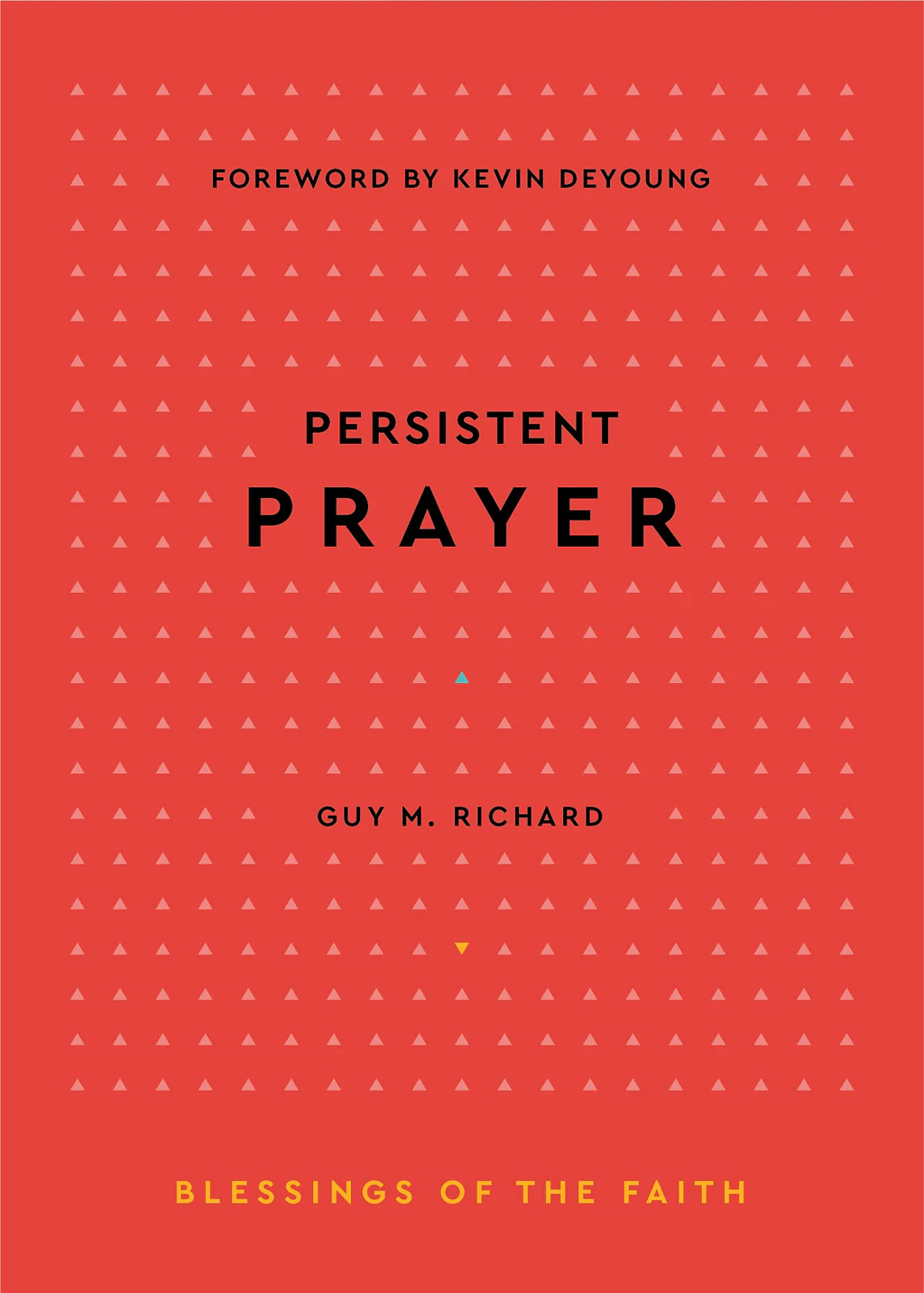
Guy M. Richard
Reviewed by: Albert J. Tricarico, Jr.
Persistent Prayer, by Guy M. Richard. P&R, 2021. Hardcover, 160 pages, $11.50. Reviewed by OP minister Albert J. Tricarico, Jr.
I was living in Uganda in fall 2005 when the destructive forces of Hurricane Katrina ravaged so much of the US Gulf Coast. I remember the event and its costly effects. I also remember how difficult it was to find information living in a faraway place where media access was limited. Unlike myself, Guy M. Richard remembered the event up close. He described its impact on him in the first sentences of his book, Persistent Prayer, one of three volumes in the Blessings of the Faith series.
For Richard, Katrina provided an occasion for learning some deep lessons about prayer. He was about to begin his first ministerial call and serve a congregation in Gulfport, Mississippi. “Looking back now,” he reports, “I see that the whole situation was a severe mercy from the Lord in so many ways. It taught me important lessons about myself, about ministry, and about the church. But, more importantly, it drove me to pray” (14).
The book is brief and accessible. It covers all the expected topics and then some. An inviting introduction is followed by four chapters and a bonus section, written under the title “Questions and Answers on Prayer.” This last (and longest) segment helped me. I found myself surprised at the list of questions, and delighted (mostly) by his answers. Here is some of what Richard offers:
Chapter one, “The Nature of Prayer,” highlights the heartfelt disposition that characterizes communication with God. “Prayer is pleading that is motivated by a need that we cannot meet ourselves and that we desperately want God to supply for us” (23). This pleading is not limited to supplication. It includes, and ought always to lead to, a pouring out of the heart in praise to the Lord (33).
In chapter two, “Prayer Works,” Richard helps us maintain positive expectation in our prayers, while submitting to the reality that God will not always respond according to our wishes. Expectant prayers are according to God’s will (45, citing 1 John 5:14–15) They align with God’s own desires and are shaped by his will as given in the Scriptures (46).
Chapter three is titled “Prayer Is Necessary.” Here Richard develops a concept drawn from the writings of J. C. Ryle—prayer is spiritual breathing. Prayer sustains spiritual life and becomes a measure of spiritual condition (65, 76).
Richard named the fourth chapter “Growing in Prayer.” Our prayers should change over time in ways that show us that our concerns have matured. “We find ourselves praying less for those things that will only make our earthly lives easier and more comfortable and praying more for spiritual things pertaining to the kingdom of the Lord Jesus Christ” (85).
Richard answers twenty-three questions at the end. If you want to know how to harmonize God’s sovereignty with prayer, whether or not to kneel while praying, or how much time should be devoted to prayer, consult this section and discover Richard’s views.
If you ask for the author’s advice, I am sure he will warn you not to wait for a severe mercy to come before you learn to pray and grow in your prayers. Read his book now and take in its lessons. They will help you understand and practice this most important aspect of Christian living.
December 14, 2025
December 07, 2025
November 30, 2025
November 23, 2025
November 16, 2025
November 09, 2025
November 02, 2025
© 2025 The Orthodox Presbyterian Church